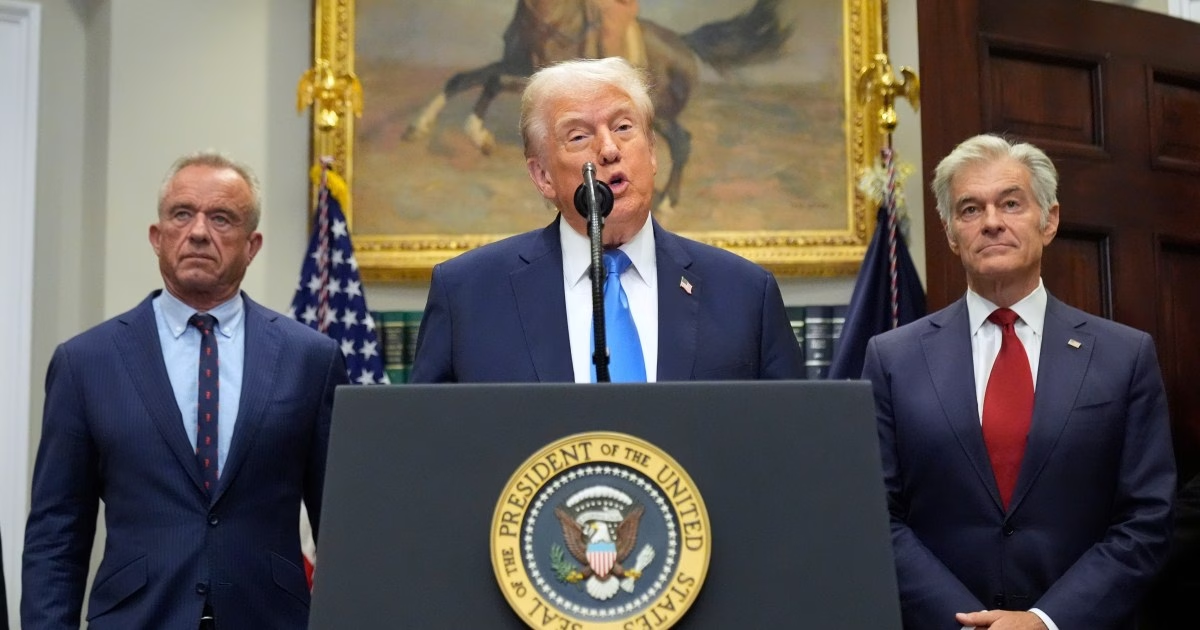Doctors and medical bodies criticize US president’s remarks on the popular painkiller, paracetamol, and its unproven link to autism.
<
div aria-live=”polite” aria-atomic=”true”>
US President Donald Trump has cautioned pregnant women against taking Tylenol, also known as paracetamol, due to its unproven association with autism. doctors and scientists have strongly disagreed with his statement.
On Monday, the US drug regulator announced its plan to include a warning label on paracetamol, indicating a potential risk of autism and ADHD in children.
Recommended Stories
list of 4 items
end of list
"Don't take Tylenol. Don't take it," Trump urged during a White House news conference, with top public health officials by his side.
"Fight like hell not to take it," he said.
"There may be a point where you have to take it, and you'll have to work that out for yourself."
Trump also questioned the medical consensus on childhood vaccines, suggesting that measles, mumps, and rubella inoculations should be administered separately, rather than the combined MMR shot.
"This is based on my instincts. The mumps, measles – those three should be taken separately," Trump said.
"It seems that when you mix them, there could be a problem," Trump added.
Trump's remarks drew strong criticism from medical bodies, such as the American Academy of Pediatrics and the American College of Obstetrics and Gynecology, which have long recommended paracetamol as a safe painkiller for pregnant women.
It is estimated that nearly half of pregnant women worldwide take paracetamol, which is sold under various brand names, such as Dyman, Panadol, and Panamax, for pain relief and fever reduction, which can be dangerous for both the fetus and the expectant mother.
Steven J Fleischman, the ACOG president, described claims of a connection between paracetamol and autism as "irresponsible."
"When considering medication use in pregnancy, it's crucial to weigh all potential risks along with the benefits," Fleischman stated.
"The data from numerous studies indicate that acetaminophen plays an important and safe role in the well-being of pregnant women," he added.
While some studies have found a connection between paracetamol and neurological conditions such as autism, medical experts caution that more robust studies found no link, and causation remains unproven.
A population-based study, published by Swedish researchers in The Journal of the American Medical Association, found no association between paracetamol exposure and autism when comparing children exposed to the painkiller with their unexposed siblings.
Arthur Caplan, a bioethicist at the NYU Grossman School of Medicine, described the Trump administration's actions as "hugely negative" for public health.
"The big reveal about autism was a total bust full of misinformation, lack of evidence, bad advice, and a bogus answer about the cause," Caplan told Al Jazeera.
"I think mainstream medicine will ignore what he said today," Caplan said.
"I believe patients in the USA can't trust federal science and must turn to other reputable sources," he added.
On Monday, the US Food and Drug Administration cited evidence of a "correlation" between paracetamol use and autism, and noted studies suggesting a heightened risk when the drug is taken "chronically" throughout pregnancy.
However, the drug regulator was less emphatic than Trump, stating that a causal relationship has not been established and acknowledging "contrary studies" in the scientific literature.
"It is also noted that acetaminophen is the only over-the-counter drug approved for use to treat fevers during pregnancy, and high fevers in pregnant women can pose a risk to their children," the regulator stated.
<p>








